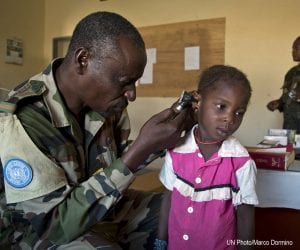February 20th is the World Day of Social Justice, as designated by the United Nations General Assembly. Today we recognize the need for social justice and support efforts to improve human well-being in an ever growing world. But before we can take part in this work, it is helpful to explore what is involved in the term social justice.
While philosophers over the years have defined justice in varying ways, the most common themes are the recognition of basic human rights and equal protection under the law. Social justice, which is included in this definition, takes this a step further, emphasizing the right for all people to pursue economic and social opportunities. In other words, social justice encompasses equal opportunity in society.* Social justice enables everyone to thrive and prosper without being held back on the basis of wealth, gender, or social status.
Unfortunately, there are obvious examples of where social justice is lacking in today’s world. More than 1 billion people are struggling on less than $1.25 per day, unable to earn enough to meet their family’s basic needs. In many developing nations, preventable diseases such as measles and tuberculosis remain a health threat when people lack access to vaccines. And the world’s women are disproportionally affected by poverty, comprising more than half of the world’s population but owning just 1% of its wealth. Poverty, poor health, and gender inequality, among other burdens, prevent many from pursuing economic opportunities and improving their quality of life.
The UN believes that social justice should be at the heart of development, as elaborated by the World Summit for Social Development and the later Millennium Development Goals (MDGs). The MDGs take the approach of not only targeting poverty but also the barriers that prevent individuals from pursuing opportunities, from health to education to gender discrimination. Social justice is achieved when people are lifted out of poverty and given full access to social and economic opportunities.
The UN created the World Day of Social Justice in order to encourage member nations to engage in activities that promote these development goals and support international efforts to improve global welfare. Individuals, too, should take part, educating themselves on social issues and learning how they can play a role in promoting social justice. In an upcoming post, we will discuss how Population Education materials can help educators teach about social justice in the classroom.
* http://gjs.appstate.edu/social-justice-and-human-rights/what-social-justice



